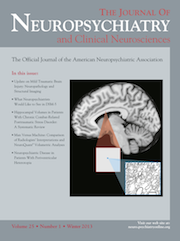Decision-Making in Diabetes Mellitus Type 1
Abstract
Decreased treatment adherence in patients with diabetes mellitus type 1 (type 1 DM) may reflect impairments in decision-making and underlying associated deficits in working memory and executive functioning. Other factors, including comorbid major depression, may also interfere with decision-making. The authors sought to review the clinically relevant characteristics of decision-making in type 1 DM by surveying the literature on decision-making by patients with type 1 DM. Deficiencies in decision-making in patients with type 1 DM or their caregivers contribute to treatment nonadherence and poorer metabolic control. Animal models of type 1 DM reveal deficits in hippocampal-dependent memory tasks, which are reversible with insulin. Neurocognitive studies of patients with type 1 DM reveal lowered performance on ability to apply knowledge to solve problems in a new situation and acquired scholarly knowledge, psychomotor efficiency, cognitive flexibility, visual perception, speed of information-processing, and sustained attention. Other factors that might contribute to poor decision-making in patients with type 1 DM, include “hypoglycemia unawareness” and comorbid major depression (given its increased prevalence in type 1 DM). Future studies utilizing novel treatment strategies to help patients with type 1 DM make better decisions about their disease may improve their glycemic control and quality of life, while minimizing the impact of end-organ disease.



